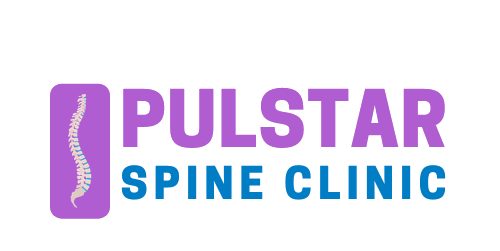Pinched Nerve Treatment with Chiropractic Methods
What is a Pinched Nerve
When the surrounding tissues like bones, cartilage, tendons, and muscles apply too much pressure on the nerves, it interferes with the proper functioning of the nerves causing pain, numbness, weakness, and tingling. This condition is referred to as a pinched nerve. The pinched or compressed nerve may cause temporary or long-lasting problems but the sooner you seek help or treatment, the better.
Pinched nerves are very ordinary. Almost 40% of people suffer from sciatica, squashing of the sciatic nerve in the lower spine, sometimes into their life.
Sciatica pain can be excruciating and usually radiates down the legs to the foot, ankle, and toe. A constant nagging pain, numbness, weakness, tingling could be a Sciatica pain on one side of the buttock or leg. In this article, we are sharing with you a few key details about how to treat a pinched nerve with holistic, chiropractic methods.
What Leads to Pinched Nerves

office woman pain at the right wrist, case woman working at table and pain at the right wrist because of hard work, office syndrome concept
The principal reason for a pinched nerve is some sort of compression on a nerve. This pressure might be a result of repetitive motions or if you keep holding your body in one position for a very long time.
The nerves in our body pass through the narrowest of places and undergo compression when they are between ligaments, tendons, and bones. The most common parts of the body where one is likely to develop pinched nerves are elbows, wrist, fingers, and hand. This often leads to problems such as peripheral neuropathy and carpal tunnel syndrome.
Furthermore, if the nerve is subjected to undergo long term pressure, then the protective covering around it might break which causes accumulation of fluid thus leading to swelling, scarring and increased pressure.
Some other causes of pinched nerves are as follows:
- Burns
- Pregnancy
- Medical conditions like diabetes and hypothyroidism.
- Degenerative joint diseases.
- Fractures.
- Obesity
- Arthritis
- Injuries to the neck, back or extremities.
Categorically speaking, the nerves that are vulnerable to the possibility of pinched nerves are:
- Ulnar nerve
- Radial nerve
- Median nerve
- Lateral femoral cutaneous nerve
- Femoral nerve
- Tibial nerve
- Peroneal nerve
- Cervical nerves
- Plantar nerves
- Sciatic nerve
What are the Symptoms of Pinched Nerve
- Reduced sensation or numbness in the pinched nerve area.
- Muscle weakness in that area.
- Sharp, radiating aching or burning pain.
- Paresthesia- tingling, pins, and needles feeling.
- Bowel or bladder dysfunction if the nerves in your lower spine are affected.
- The feeling that your limbs are “falling asleep”.
These symptoms can get triggered when you try to move a certain body part, for example- your head.
How can Pinched Nerves be Prevented
Pinched nerves can be prevented by practicing the following simple steps.
- Exercise regularly. Incorporate stretching into your exercising program.
- Taking breaks between monotonous exercises to prevent overstressing.
- Maintain a healthy weight.
- Maintain good body posture.
Pain-Killers and Anti-Inflammatory Drugs Are Packed with Side-Effects
- When it comes to quick pain relief, most medical practitioners prescribe an over-the-counter or non-steroidal anti-inflammatory drug (NSAID) such as ibuprofen (Advil, Motrin) or aspirin. Cox-2 inhibitors, a newer league of NSAIDs are known to be even more effective. For acute pain conditions, the doctor might even recommend opioid drugs.
- Unfortunately, most of these conventional medicines attempt to ‘Suppress the pain condition” rather than treating it. In fact, most of these drugs usually have strong side-effects including gastrointestinal bleeding, liver damage, heart conditions, and other related cardiovascular events. Drowsiness and partial hallucination are by far the most prevalent after-effect of opioid drugs.
Chiropractic Treatment of Pinched Nerves
Chiropractors are joint and spinal experts. Their intention is to restore normal motion and alignment to the affected joints by stretching the surrounding muscles manually or by using medical apparatus. Chiropractic therapies are highly popular since it is non-invasive, drug-free and non-surgical.
Chiropractic treatment, when combined with some other remedies like Active Release and McKenzie therapy, can help reduce pain faster. Physical therapy, exercises, massage therapy stretching and traction are usually used by Chiropractors to treat problems associated with pinched nerves.
Most chiropractors are experts when it comes to treating areas that are prone to a pinched nerve. Chiropractic focuses on your natural joint and spine curves to remove unwanted pressure in the neck gracefully.
If somebody has a pinched nerve scenario in his back or neck then the doctor will examine the area for possible subluxations. The treatment plan will usually involve spinal adjustments, massage therapy, and lifestyle modifications. Breaking down the scar tissues formed due to repetitive injuries and inflammation is a key feature of Chiropractic treatment. Massage therapy could be very effective in decreasing pain, inflammation, and muscle spasms.
For spinal adjustments, gentle and controlled, a non-invasive force will be directed on the back to align the vertebrae. Once the spine is adjusted, the nerve blocks are removed to allow blood carrying oxygen and nutrients throughout the body. Once the circulation improves, the immune system is boosted and the patient is significantly relieved from pain.
Concluding Thoughts
Instead of enduring the agony of pinched nerves, it is advisable to visit a chiropractor and schedule regular checkups for faster recovery. It has been concluded that spinal adjustments are safe and no less effective as conventional treatments like pain reduction medications.

